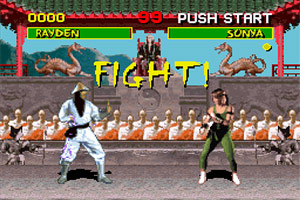CQ WEEKLY – VANTAGE POINT
Feb. 9, 2013 – 2:45 p.m.
Game Industry Takes On Critics
By Shawn Zeller, CQ Staff

|
||
|
Since the White House last month called on the Centers for Disease Control and Prevention to determine whether there is a link between violent video games and violent behavior, the video game industry has tried to remain diplomatic in its public comments, pledging “to collaborate with the administration and Congress as they examine the facts that inform meaningful solutions.”
But the Entertainment Software Association has long dismissed any link between games and real-life violence and has sounded a different tune in messages to game enthusiasts who signed up for its Video Game Voters Network. “Gamer rights are being threatened again,” a late January email read. “We’re being put up as scapegoats for recent tragic violent events in this country.” It added, “We can’t let these vile charges go unchallenged.”
After December’s elementary school shootings in Newtown, Conn., National Rifle Association lobbyist Wayne LaPierre leveled some of the most incendiary charges at the industry, calling it “a callous, corrupt and corrupting shadow industry that sells and sows violence against its own people.”
The game industry email cited as recent evidence criticism by consumer activist Ralph Nader and Tennessee GOP Sen.
Another missive, sent Feb. 5, asked game enthusiasts to sign a form letter to their representatives and senators asking them to back off any plans to regulate games.
For an industry that’s long faced state-level proposals to regulate games, that’s no change in policy. The Entertainment Software Association has steadfastly opposed any regulation of games, maintaining that the First Amendment protects their content. And the industry has repeatedly defended that position in court, persuading judges to strike down regulatory laws in states such as Illinois and Oklahoma. The industry’s most impressive win came in 2011, when the Supreme Court struck down a California law that barred the sale of violent video games to people under 18 years old.
Game-makers have also opposed legislative efforts to increase taxes on video games or to allow the government to mandate the rating of video games for violent or adult content. The industry has a voluntary rating system that is widely used.
Last month, for instance, the Entertainment Software Association dismissed as “unconstitutional” a House bill introduced Jan. 15 by Utah Democrat
The group pooh-poohed the idea of studying whether there is a link between games and violent behavior when Democrat
And it has dismissed President
Nonetheless, there is some debate on the issue. In December, the Journal of Experimental Social Psychology published a paper by researchers at Ohio State University, the University Pierre Mendès-France in Grenoble, France, and the University of Hohenheim in Germany that found that people who regularly played violent video games showed increases in aggressive behavior each consecutive day that they played.
But the industry says the opposite may be true. In a Jan. 9 letter to Vice President